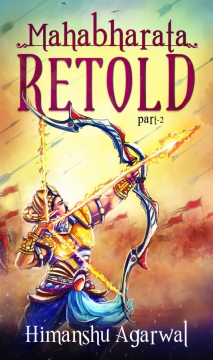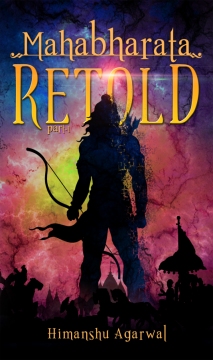
- Discover books
- For Writers
-
For Writers
-
Indie Author Championship
-
Challenges
Writing Contests
- Get Started

"It was a wonderful experience interacting with you and appreciate the way you have planned and executed the whole publication process within the agreed timelines.”
Subrat SaurabhAuthor of Kuch Woh Pal -
-
-
IN
- India
- Singapore
- Malaysia
- 0
Himanshu Agarwal
The author, Mr. Himanshu Agarwal, was born in the 1980s. He describes himself as a rationalist with a whole new perspective behind writing this book. He always wondered why his elders, after getting a lifetime of experience, education and wealth, finally became believers of the holy books and ancient rituals. This sparked in him a desire to study the holy books. After reading these books, the author found that these held vast knowledge which is beyond modern science. But at the same time, the author also realized that the truths of these ancient texts were getting diminished over time. Vital fRead More...
The author, Mr. Himanshu Agarwal, was born in the 1980s. He describes himself as a rationalist with a whole new perspective behind writing this book. He always wondered why his elders, after getting a lifetime of experience, education and wealth, finally became believers of the holy books and ancient rituals. This sparked in him a desire to study the holy books. After reading these books, the author found that these held vast knowledge which is beyond modern science. But at the same time, the author also realized that the truths of these ancient texts were getting diminished over time. Vital facts were missing. The Mahabharata is the history of mankind; a truth that flows with interesting facts, tales of valor and a description of life as it was lived in that era. The author weaves together the facts and reality, with innumerable tales.
Read Less...Crop your profile image

Mahabharata Retold Part-2
Books by Himanshu Agarwal
Man is a social animal; no man can live in isolation. We are surrounded by people. We have family, friends, social acquaintances, work acquaintances and so on. Since the time of our birth, we add names, relationships and people in our social calendars. They become an integral part of our lives as we interact with them on a daily basis.
If a person does not acquire knowledge or does not put their common sense to use, continues to live an ignorant life or
Man is a social animal; no man can live in isolation. We are surrounded by people. We have family, friends, social acquaintances, work acquaintances and so on. Since the time of our birth, we add names, relationships and people in our social calendars. They become an integral part of our lives as we interact with them on a daily basis.
If a person does not acquire knowledge or does not put their common sense to use, continues to live an ignorant life or chooses to remain blind, it is the worst kind of life. It is a life of misery and ill luck.
In Mahabharata Retold Part-1, we saw the reasons behind the war.
Mahabharata Retold Part-2 marks the best and worst times of one’s life and the time after such a period. Life never ends. We gain and lose in the same life. Our decisions are right at one stage of life and the same decisions stand wrong on another. Life is a series of changes that are unpredictable by the human mind.
It not only covers the greatest war of mankind but also tells us what happened after it—how war changes the world around us. Mahabharata’s war was not the only purpose of this Veda’s compilation.
Mahabharata Retold
Books by Himanshu Agarwal
Man has been advancing through a plethora of inventions and discoveries that have led to a tremendous transition in culture, education and perception of thoughts.
Nowadays, life hurtles ahead, leaving us with no time for inner growth. So we consider the tales of our ancestors and our epics as mere myths. This book emphasizes on the past of the human race and describes the link between the first man and the lineage of the Mahabharata.
The book als
Man has been advancing through a plethora of inventions and discoveries that have led to a tremendous transition in culture, education and perception of thoughts.
Nowadays, life hurtles ahead, leaving us with no time for inner growth. So we consider the tales of our ancestors and our epics as mere myths. This book emphasizes on the past of the human race and describes the link between the first man and the lineage of the Mahabharata.
The book also describes the various facts that led to the epic war of the Mahabharata. The author has portrayed the reasons due to which the Mahabharata war commenced, and has also explained the strategies employed in the war.
The Mahabharata is incomplete without the role of Lord Krishna. The book also portrays the lineage of Lord Krishna and describes his role in the Mahabharata war in depth.
Read Book 1, the Mahabharata, for a treasure house of ancient tales, with yet a touch of reason and reality in them!

Are you sure you want to close this?
You might lose all unsaved changes.
Select from one of our global stores to continue
 India
India
 Singapore
Singapore
 Malaysia
Malaysia
Warning Message
The items in your Cart will be deleted, click ok to proceed.












